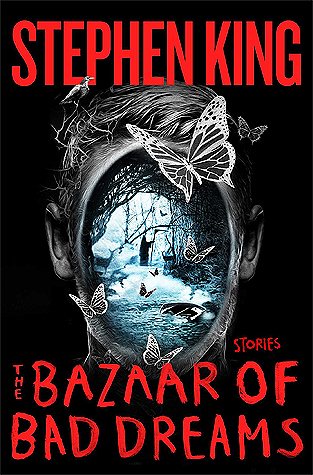
The Dead Zone/Cujo
Book Description
What if a single choice could change everything? In 'The Dead Zone/Cujo,' a man awakens from a coma with a terrifying gift: the ability to glimpse the future, but at a shocking personal cost. Meanwhile, a family’s nightmare unfolds as a rabid dog terrorizes their lives, pushing them to the brink of desperation. Two gripping tales intertwine the horror of fate and fear, testing the limits of love, courage, and sacrifice. Can the power of foresight save lives, or is it just a cruel burden? What lengths would you go to protect the ones you love?
Quick Book Summary
"The Dead Zone/Cujo" presents two of Stephen King's most chilling tales of terror and the human condition. In "The Dead Zone," Johnny Smith awakens from a five-year coma to find he possesses psychic abilities, enabling him to foresee tragic events. Haunted by his visions and personal losses, Johnny must grapple with whether to intervene in fate, especially when he foresees a potential catastrophe linked to a rising political figure. "Cujo" tells a contrasting tale centered on a family trapped in their car by a rabid St. Bernard. As the dog becomes an unstoppable force of violence, Donna Trenton and her son Tad face a terrifying fight for survival. Both stories delve deep into themes of helplessness, fate, and the extremes of human courage, illustrating how ordinary people confront extraordinary terror.
Summary of Key Ideas
Table of Contents
The Burden and Ethics of Foresight
Johnny Smith’s life is irrevocably changed after a car accident leaves him in a deep coma for five years. When he wakes, he finds his world altered and relationships distant, but he has developed the unsettling ability to glimpse the future through physical contact. As Johnny grapples with his new gift, he is tormented by its consequences: the burden of knowing tragic events before they happen, and the challenge of convincing others to believe him. His powers place grave personal costs on his emotional well-being, leaving him isolated and questioning free will versus predestined fate.
Randomness and Cruelty of Fate
Johnny’s path crosses with Greg Stillson, an ambitious politician whose intentions threaten catastrophic consequences for the world. As Johnny’s visions reveal Stillson’s dark future, he faces a wrenching moral decision: should he attempt to stop a disaster he alone can foresee, even if it means sacrificing his own morality and peace? King masterfully explores the ethics of foresight, destiny, and the toll of carrying such knowledge, reflecting on whether one individual can or should alter the course of history.
The Limits of Human Endurance
In "Cujo," the tranquil life of the Trenton family unravels when their car breaks down at a remote mechanic’s home. There they encounter Cujo, a friendly St. Bernard who has been transformed into a monstrous threat by rabies. Trapped inside their car during a heatwave, Donna and her young son Tad are pushed to their physical and psychological limits as they struggle to survive the relentless, mindless violence just outside their doors. The randomness of their plight underscores the inherent unpredictability of life and tragedy.
Fear as Transformative and Paralyzing
Paralyzing fear permeates both stories—a supernatural dread in Johnny’s premonitions and a primal terror in the face of Cujo’s rage. For all their horrors, these narratives test the resilience, courage, and resourcefulness of their characters. Both Johnny’s and Donna’s ordeals become emotional crucibles, challenging their values, sense of self, and abilities to protect the ones they love. The stories ultimately ask whether love, determination, or knowledge can prevail against fate’s cruelest designs.
Sacrifice and Moral Dilemmas
"The Dead Zone/Cujo" weaves together themes of isolation, the costs of intuition, and the universal fear that disaster can strike at any moment. King’s dual narratives serve as gripping meditations on powerlessness, the burden of extraordinary responsibility, and the sacrifices demanded by love. These tales reaffirm that sometimes the true horror lies not in monsters—real or imagined—but in the choices that fate compels us to make.
Download This Summary
Get a free PDF of this summary instantly — no email required.





